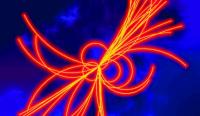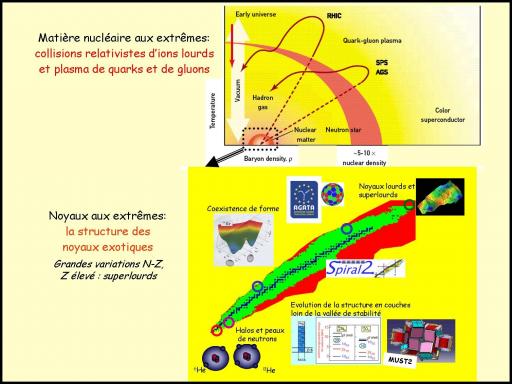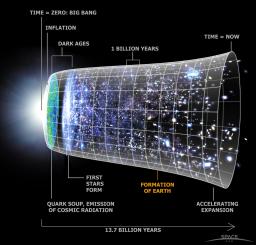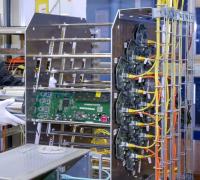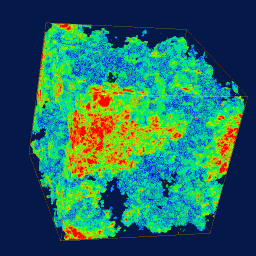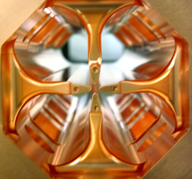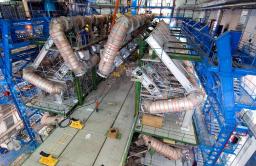The ultimate constituents of matter
Research on the elementary constituents of the Universe is a strong focus of Irfu's activities. The groups are actors in the ATLAS and CMS projects at the LHC and are invested in the design of future collider projects. In the bestiary of elementary particles, the neutrino is an enigma in itself and many projects are at work with reactors, sources and accelerators, to discover its mysteries and unravel those of the new physics beyond the standard model. ...
Irfu conducts fundamental research, mainly experimental but also theoretical, on nucleons and nuclei, elementary bricks of matter whose cohesion is ensured by strong interaction. Strong interaction occurs at two successive scales. The first is the assembly of quarks and gluons, whether deconfined in plasma or bound in the nucleon and other hadrons. The second concerns the nucleon assemblies which constitute the nuclei of the different atoms. ...
Structure and evolution of the Universe
Studying the structuration of the Universe consists in studying how galaxies, galaxy clusters, stars and planets form and evolve. The starting point of the structuration of the Universe is well known: the tiny inhomogeneities in the diffuse cosmological background, as observed by WMAP and more recently by Planck. The theoretical framework of the studies is the so-called “cosmological concordance model”, with its two components: dark energy and dark matter. ...
Evolution of the large structures and galaxies
Innovation for detection systems
Irfu develops detection, acquisition and data processing systems for many types of physics experiments: - for space projects: from the design and manufacture of sensors of all wavelength types to data processing from the satellite to the distribution of data to ground processing centres. ...
Detectors for both infinite physics
Modelisation, calculation and data analysis
To carry out their scientific programs, the teams call upon the processing of large volumes of data, as well as the mastery of complex simulation tools. Irfu uses national and European computing resources, such as the computing grid and large parallel computers, develops a set of programs, analysis tools and 3D visualization and uses the best calculators in the world to simulate the Universe with its variety of scales, from the structure of the proton to the formation of large structures from the primordial Universe. ...
superconducting magnet physics and technology
Accelerators play a crucial role in the physics of the infinitely small, where the goal is to explore new domains of energy (access to new particles) and intensity (access to rare phenomena). All particle accelerators use magnets to transport the beam. All particle physics experiments need large magnets to deduce the properties of emitted charged particles by detecting them. Accelerators and magnets are thus key elements of any subatomic physics experimental program. ...
Instrumentation and development for R&D magnets
The Institute's technological positioning is closely linked to the scientific programme that guides the necessary instrumental developments and to the R&D programme in the Institute's fields of expertise. At Irfu, there are several platforms for the realization, integration, and testing of prototypes or series of detectors, to serve our various themes such as space, detectors, accelerators and cryomagnetism. ...
Development and integration platform for astrophysics
Development and integration platform for nuclear and particle physics
Development, integration and test platform for accelerators and superconducting magnets: Synergium


